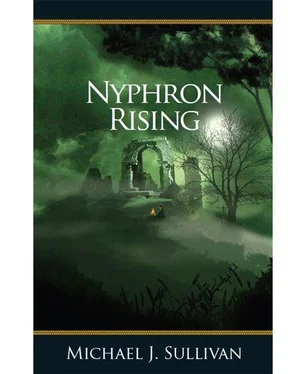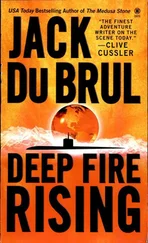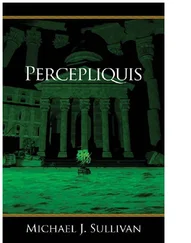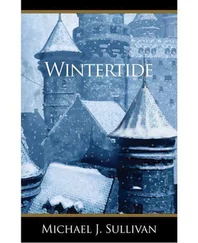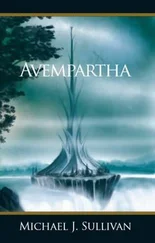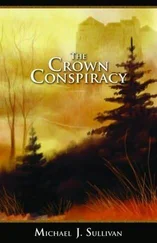Michael Sullivan - Nyphron rising
Здесь есть возможность читать онлайн «Michael Sullivan - Nyphron rising» весь текст электронной книги совершенно бесплатно (целиком полную версию без сокращений). В некоторых случаях можно слушать аудио, скачать через торрент в формате fb2 и присутствует краткое содержание. Жанр: Фэнтези, на английском языке. Описание произведения, (предисловие) а так же отзывы посетителей доступны на портале библиотеки ЛибКат.
- Название:Nyphron rising
- Автор:
- Жанр:
- Год:неизвестен
- ISBN:нет данных
- Рейтинг книги:4 / 5. Голосов: 1
-
Избранное:Добавить в избранное
- Отзывы:
-
Ваша оценка:
- 80
- 1
- 2
- 3
- 4
- 5
Nyphron rising: краткое содержание, описание и аннотация
Предлагаем к чтению аннотацию, описание, краткое содержание или предисловие (зависит от того, что написал сам автор книги «Nyphron rising»). Если вы не нашли необходимую информацию о книге — напишите в комментариях, мы постараемся отыскать её.
Nyphron rising — читать онлайн бесплатно полную книгу (весь текст) целиком
Ниже представлен текст книги, разбитый по страницам. Система сохранения места последней прочитанной страницы, позволяет с удобством читать онлайн бесплатно книгу «Nyphron rising», без необходимости каждый раз заново искать на чём Вы остановились. Поставьте закладку, и сможете в любой момент перейти на страницу, на которой закончили чтение.
Интервал:
Закладка:
That sneeze, along with a short-lived curse placed on Countess Amril, were her only magical successes during her apprenticeship with Esrahaddon. She had tried and failed the rain spell hundreds of times. Then her father was murdered and she never tried again. She was too busy helping Alric with their kingdom to waste time on childish games. She glanced skyward.
What else do I have to do?
She recalled the instructions, and letting the reins hang limp on her horse's neck, she practiced the delicate weaving patterns in the air. The incantation she recalled easily enough, but the motions were all wrong. She could feel the awkwardness in the movements. There needed to be a pattern to the motion-a rhythm, a pace. She tried different variations and discovered she could tell which motions felt right and which felt wrong. It was like fitting puzzle pieces together while blindfolded, or working out the notes of a melody by ear. She would simply guess at each note, until by sheer chance, she hit upon the right one, then adding it to the whole she moved on to the next. It was tedious, but it kept her mind occupied. She caught a curious glance from Hadrian but she did not explain, nor did he ask.
Arista continued to work at the motions as the miles passed until, mercifully, it began to rain on its own. She looked up to let the cool droplets hit her face and she wondered if it was boredom that prompted her recollection of her magical studies, or was it because they had steered off the Imperial Highway and were now on the road to Sheridan University.
Sheridan was for the sons of merchants and scribes, those needing to know mathematics and writing, not for the nobility, and certainly not for future rulers. What use would a king have for mathematics? What good would come from philosophy? For that, he had advisers. All he needed to know was how to swing a sword, the proper tactics of military maneuvers, and the hearts of men. School could not teach these things. It was rare for a prince or duke's son to attend the university, much less a princess.
Arista spent some of her happiest years within the sheltered valley of Sheridan. Here the world opened up to her. Here she escaped the suffocating vacuum of courtly life where her only purpose was the same as the statues, another adornment for the castle halls and eventually a commodity-married for the benefit of the kingdom.
Her father was not at all pleased with his daughter's abnormal interest in books, but he never forbade her. She kept her reading habit discreet, which caused her to spend more and more time alone. She would steal books from the scribe's collection, or scrolls from the clergy. Most often she borrowed books from Bishop Saldur, who often left behind stacks of them after visits with her father. She spent hours reading in the sanctuary of her tower. They took her away to far off lands, where for a time she was happy. They filled her head with ideas; thoughts of a greater world, of a life beyond the halls, of a life lived bravely, heroically. It was through these borrowed books that she learned of the university and later of Gutaria Prison.
She remembered asking her father permission to attend the university. At first, he adamantly refused and laughed, patting her head. She cried herself to sleep feeling trapped. All her ideas and ambitions sealed forever in a permanent prison. When her father changed his mind the next day, it never occurred to her to ask him why.
What are we doing here?
It irked her not knowing-patience was a virtue she still wrestled with. As they descended into the university's vale, she felt a modest inquiry would not hurt. She opened her mouth, but Hadrian beat her to it.
"Why are we going to Sheridan?" he asked, trotting up closer to Royce.
"Information," Royce replied in his normal curt manner that betrayed nothing else.
"It's your party. I'm just along for the ride."
No, no, no, she thought, ask more. Arista waited. Hadrian let his horse drift back. This was her opening, she had to say something. "Did you know I attended school there? You should speak to the Master of Lore, Arcadius," she offered. "The Chancellor is a pawn of the church, but Arcadius can be trusted. He's a wizard and used to be my professor. He'll know, or be able to find out, whatever it is you're interested in."
That was perfect. She straightened up in her saddle, pleased with herself. Common politeness would demand Royce reveal his intentions now that she showed an interest, some knowledge on the subject, and an offer to help. She waited. Nothing. The silence returned.
I should have asked a question. Something to force him to respond. Damn.
Gritting her teeth, she slumped forward in frustration. She considered pressing further, but the moment had passed and now it would be difficult to say anything without sounding critical. Being an ambassador taught her the value of timing, to be conscious of other people's dignity and authority. Being born a princess, it was a lesson not easily learned. She opted for silence, listening to the rain drum on her hood and the horses plodding through the mud as they descended into the valley.
The stone statue of Glenmorgan stood in the center of the university holding a book in one hand and a sword in the other. Walkways, benches, trees, and flowers surrounded the statue on all sides as did numerous school buildings. A growing enrollment required the addition of several lecture halls and dormitories with each reflecting the architectural styles of their time. In the gray sheets of rain, the university looked like a mirage, a whimsical, romantic dream conceived in the mind of a man who spent his entire life at war. That an institution of pure learning existed in a world of brutish ignorance was more than a dream, it was a miracle, a testament to the wisdom of Glenmorgan.
Glenmorgan intended the school to educate laymen at a time when hardly any but ecclesiastics could read. Its success was unprecedented. Sheridan achieved eminence above every other seat of learning, winning the praises of patriarchs, kings, and sages. Early on, Sheridan also established itself as a center for lively controversy, with scholars involved in religious and political disputes. Handel of Roe, a Master of Sheridan, campaigned for Ghent's recognition of the newly established Republic of Delgos against the wishes of the Nyphron Church. The school was also decidedly Royalist in the civil wars following the Steward's Reign, which came as an embarrassment to the church that had retained control of Ghent. The humiliation led to the heresy trials of the three masters Cranston, Landoner, and Widley, all burned at the stake on the Sheridan commons. This quieted the school's political voice for more than a century until Edmund Hall, Professor of Geometry and Lore at Sheridan, claimed to use clues gleaned from ancient texts to locate the ruins of Percepliquis. He disappeared for a year and returned with books and tablets revealing arts and sciences long lost spurring an interest in all things imperial. At this time, a greater orthodoxy had emerged within the church and it outlawed owning or obtaining holy relics, as all artifacts from the ancient Empire were deemed. They arrested Hall and locked him in Ervanon's Crown Tower along with his notes and maps. The church later declared that Hall never found the city and that the books were clever fakes, but no one ever heard from Edmund Hall again.
The tradition of Cranston, Landoner, Widley, and Hall was embodied in the present Master of Lore-Arcadius Vintarus Latimer. Arista's old magic teacher never appeared to notice the boundaries of good taste, much less those of political or religious significance. Chancellor Lambert was the school's head because the church found his political leanings satisfactory to the task, but Arcadius was its undisputed heart and soul.
Читать дальшеИнтервал:
Закладка:
Похожие книги на «Nyphron rising»
Представляем Вашему вниманию похожие книги на «Nyphron rising» списком для выбора. Мы отобрали схожую по названию и смыслу литературу в надежде предоставить читателям больше вариантов отыскать новые, интересные, ещё непрочитанные произведения.
Обсуждение, отзывы о книге «Nyphron rising» и просто собственные мнения читателей. Оставьте ваши комментарии, напишите, что Вы думаете о произведении, его смысле или главных героях. Укажите что конкретно понравилось, а что нет, и почему Вы так считаете.
